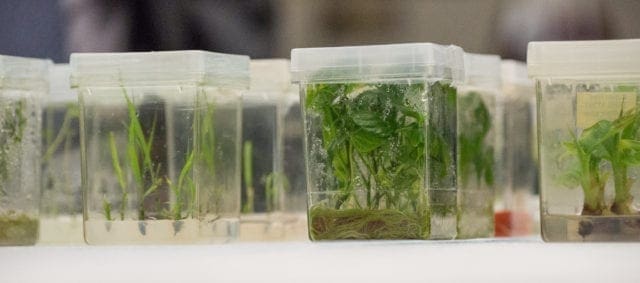Channels
Special Offers & Promotions
Choosing the Best Autoclave for Microbiology Lab Use


6 Questions to Consider When Choosing Sterilisation Solutions for Your Lab
Choosing the right autoclave for a microbiology lab is no small endeavor. Not only is it a valuable investment, it’s also an essential tool for many daily laboratory tasks. If you’re shopping for the right sterilisers for use in your organisation’s laboratories, the options—and the potential impact on your work, your colleagues, and your budgets—might seem overwhelming. Asking yourself (or us!) these six questions can help you get closer to the right autoclave for your microbiology lab
1. What Method of Sterilisation Do We Need?
There are many options for sterilisation (e.g., irradiation, chemical, high temperatures “dry-heat” or steam, and so on). But in microbiology labs (which routinely handle culture media sterilisation and potentially biohazardous waste loads), a steam autoclave is almost certainly the way to go. A programmable steam autoclave that allows for vacuum cycles (which ensure sterilisation of irregular, oversized, and waste loads) is almost always preferable. An autoclave specifically designed for lab research and outfitted with a stainless steel chamber (rather than aluminum, clad aluminum, etc.) will be much more durable in a lab setting (which can be hard on autoclaves).
2. What’s the Right Size Autoclave for a Microbiology Lab?
In most cases, a 100L or larger autoclave will be the right choice for a microbiology laboratory. Benchtops are available, but their smaller chamber volume can create challenges if you ever handle larger or awkwardly shaped loads. A larger laboratory autoclave will be easier to load and offer more flexibility.
3. Can We Just Use a “Dental”/”Medical” Autoclave?
You can, but you probably don’t want to. You’ll be much better served by an autoclave built for research.
Some smaller steam sterilisers (like those used in dental offices or tattoo parlors) are just glorified pressure cookers. They require too much hands-on attention and monitoring for lab use. You’re going to need a programmable system with flexible controls so that you can attend to other tasks while your steriliser works.
Meanwhile, although larger steam jacketed autoclaves (sometimes called “medical autoclaves,” because they are primarily designed for use in a medical setting) offer larger capacity and quicker cooling for some media loads, they also require constant maintenance. Even when well maintained, they experience reliability issues owing to the complexity of their design.
On top of all that, medical autoclaves are extremely wasteful: they use 100-150 gallons of water per cycle and many can never be completely powered down. Research autoclaves can be so much more energy efficient because they can be completely powered down when not in use, can be programmed, and use 87% less water and 75% less energy to do the same jobs.
4. Is a Front-Loading Autoclave or a Top-Loading Autoclave Right for Our Laboratory?
Front-loading laboratory autoclaves might be most familiar to most North Americans, but top loading autoclaves are generally more efficient—especially if you need to handle oversized items like tall flasks, bio-reactors, etc. Take time to consider top-loading models, even if they are unfamiliar to you.
5. Do I Need to Think About Validation and Calibration?
Yes! Regular validation is crucial to ensuring the laboratory autoclave is functioning properly and consistently achieving the desired sterilisation results. Choose an autoclave that is easy to validate and calibrate.
6. Who’s Going to Provide Service and Support?
Consider reliability, but also the quality of customer support and service. Look at the details of their warranty—especially for the pressure chamber—and their support guarantee. Do they have local ASAs? Are factory techs willing to hop on the phone/zoom/chat/email and help you work through a problem?
Priorclave Autoclaves for Microbiology Labs
Many microbiology labs find that Priorclave’s autoclaves are the best choice for them. That’s because our autoclaves are built for research, with an ASME-stamped 316L stainless steel pressure chamber and full programmability. Our steam autoclaves are each custom built in our south London factory, available in a variety of sizes. They are optimised for efficiency and ease of use over the long haul and backed by our exceptional service and support. Get in touch and let us help you find the best autoclave for your microbiology laboratory.
Media Partners


